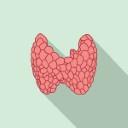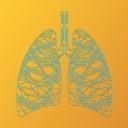-
July 2, 2020: The Week in Cancer News
A study finds that incidence of thyroid cancer rose by 169% between 1990 and 2017, and the Food and Drug Administration approves a version of a breast cancer treatment that can be given at home.
by Kate Yandell
-
June 26: The Week in Cancer News
A study finds that hereditary mutations are elevated in early-onset cancers, and initiatives aim to improve treatment for children with cancer.
by Kate Yandell and Marci A. Landsmann
-
Why Are Early-Onset Cancers Rising?
Some cancers that are most commonly diagnosed in older adults are becoming increasingly prevalent in young adults.
by Kate Yandell
-
June 19: The Week in Cancer News
A study indicates that a sedentary lifestyle increases risk of death from cancer, and the Food and Drug Administration approves the human papillomavirus vaccine for prevention of head and neck cancer.
by Kate Yandell
-
June 12: The Week in Cancer News
The American Cancer Society updates its guidelines on diet and physical activity, and a study projects that caring for Americans with cancer will cost more than $245 billion by 2030.
by Kate Yandell
-
June 5: The Week in Cancer News
Data show that some people with early-stage non-small cell lung cancer can benefit significantly from treatment with a targeted therapy, and COVID-19 slows the rate of enrollment in cancer clinical trials.
by Kate Yandell
-
May 29: The Week in Cancer News
A study shows that a more tolerable, dose-adjusted chemotherapy regimen can effectively treat a rare lymphoma, and data from registries provide information on which cancer patients are at greatest risk of death from COVID-19.
by Kate Yandell
-
May 22: The Week in Cancer News
A study finds that metastatic prostate cancer incidence rose after the U.S. Preventive Services Task Force urged against routine PSA testing, and the Food and Drug Administration approves two PARP inhibitors for treatment of prostate cancer.
by Kate Yandell
-
May 15: The Week in Cancer News
A study indicates that children with cancer are not at increased risks of severe cases of COVID-19, and researchers find that Medicaid expansion was associated with reduced cancer deaths.
by Kate Yandell
-
May 8: The Week in Cancer News
A study finds that opioid deaths have slightly increased among people with cancer, and the Food and Drug Administration approves a targeted therapy for non-small cell lung cancer.
by Kate Yandell
Cancer Talk
Treatment Combination Improves Survival in EGFR-positive Lung Cancer
Adding chemotherapy to targeted therapy improves outcomes for people with advanced EGFR-positive non-small cell lung cancer.
by Sandra Gordon
Lessons From 20 Years Living With CancerMultiple myeloma survivor Jonathan Gluck reflects on uncertainty, and the scientific progress that has kept him living with cancer for more than two decades.
by Eric Fitzsimmons
The Enduring Importance of Cancer Disparities ResearchOpening session from AACR conference highlights how perseverance and adversity have informed cancer disparities research over the years.
by Eric Fitzsimmons
Most Cancer Survivors Don’t Meet Healthy Diet GoalsDespite research linking fruits and vegetables to cancer survival, many people do not change their eating habits after diagnosis.
by Darlene Dobkowski













